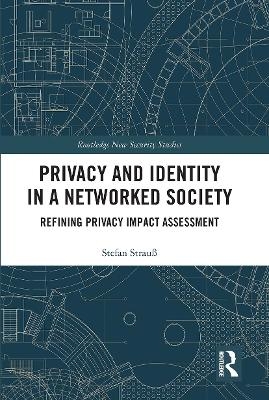
Privacy and Identity in a Networked Society
Refining Privacy Impact Assessment
Seiten
2020
Routledge (Verlag)
978-0-367-73013-0 (ISBN)
Routledge (Verlag)
978-0-367-73013-0 (ISBN)
This book offers an analysis of privacy impacts resulting from and reinforced by technology and discusses fundamental risks and challenges of protecting privacy in the digital age.
Privacy is among the most endangered "species" in our networked society: personal information is processed for various purposes beyond our control. Ultimately, this affects the natural interplay between privacy, personal identity and identification. This book investigates that interplay from a systemic, socio-technical perspective by combining research from the social and computer sciences. It sheds light on the basic functions of privacy, their relation to identity, and how they alter with digital identification practices. The analysis reveals a general privacy control dilemma of (digital) identification shaped by several interrelated socio-political, economic and technical factors. Uncontrolled increases in the identification modalities inherent to digital technology reinforce this dilemma and benefit surveillance practices, thereby complicating the detection of privacy risks and the creation of appropriate safeguards. Easing this problem requires a novel approach to privacy impact assessment (PIA), and this book proposes an alternative PIA framework which, at its core, comprises a basic typology of (personally and technically) identifiable information. This approach contributes to the theoretical and practical understanding of privacy impacts and thus, to the development of more effective protection standards.
This book will be of much interest to students and scholars of critical security studies, surveillance studies, computer and information science, science and technology studies, and politics.
Privacy is among the most endangered "species" in our networked society: personal information is processed for various purposes beyond our control. Ultimately, this affects the natural interplay between privacy, personal identity and identification. This book investigates that interplay from a systemic, socio-technical perspective by combining research from the social and computer sciences. It sheds light on the basic functions of privacy, their relation to identity, and how they alter with digital identification practices. The analysis reveals a general privacy control dilemma of (digital) identification shaped by several interrelated socio-political, economic and technical factors. Uncontrolled increases in the identification modalities inherent to digital technology reinforce this dilemma and benefit surveillance practices, thereby complicating the detection of privacy risks and the creation of appropriate safeguards. Easing this problem requires a novel approach to privacy impact assessment (PIA), and this book proposes an alternative PIA framework which, at its core, comprises a basic typology of (personally and technically) identifiable information. This approach contributes to the theoretical and practical understanding of privacy impacts and thus, to the development of more effective protection standards.
This book will be of much interest to students and scholars of critical security studies, surveillance studies, computer and information science, science and technology studies, and politics.
Stefan Strauß is Senior Researcher at the Institute of Technology Assessment at the Austrian Academy of Sciences in Vienna, Austria.
1. Introduction: Is privacy suffering from a digital disease? 2. A systemic perspective on privacy and identification 3. The interplay between identity, identification and privacy 4. Identification practices and the digital transformation of society 5. The privacy control dilemma of digital identification 6. How to regain control? Assessing privacy by design and privacy impact assessment 7. Towards an identifiability-based framework for privacy impact assessment 8. Is effective treatment of privacy possible? Summary and concluding remarks
| Erscheinungsdatum | 16.01.2021 |
|---|---|
| Reihe/Serie | Routledge New Security Studies |
| Verlagsort | London |
| Sprache | englisch |
| Maße | 156 x 234 mm |
| Gewicht | 539 g |
| Themenwelt | Informatik ► Netzwerke ► Sicherheit / Firewall |
| Sozialwissenschaften ► Politik / Verwaltung ► Europäische / Internationale Politik | |
| ISBN-10 | 0-367-73013-8 / 0367730138 |
| ISBN-13 | 978-0-367-73013-0 / 9780367730130 |
| Zustand | Neuware |
| Haben Sie eine Frage zum Produkt? |
Mehr entdecken
aus dem Bereich
aus dem Bereich
Das Lehrbuch für Konzepte, Prinzipien, Mechanismen, Architekturen und …
Buch | Softcover (2022)
Springer Vieweg (Verlag)
34,99 €
Management der Informationssicherheit und Vorbereitung auf die …
Buch (2024)
Carl Hanser (Verlag)
69,99 €


